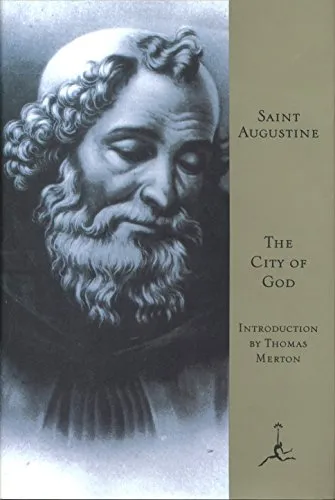Synopsis:
One of the great cornerstones in the history of Christian philosophy, The City of God provides an insightful interpretation of the development of modern Western society and the origin of most Western thought. Contrasting earthly and heavenly cities--representing the omnipresent struggle between good and evil--Augustine explores human history in its relation to all eternity. In Thomas Merton's words, "The City of God is the autobiography of the Church written by the most Catholic of her great saints."
This Modern Library Paperback Classics edition is a complete and unabridged version of the Marcus Dods translation.
This Modern Library Paperback Classics edition is a complete and unabridged version of the Marcus Dods translation.
Review:
Augustine'sCity of God,a monumental work of religious lore, philosophy, and history, was written as a kind of literary tombstone for Roman culture. After the sack of Rome, Augustine wrote this book to anatomize the corruption of Romans' pursuit of earthly pleasures: "grasping for praise, open-handed with their money; honest in the pursuit of wealth, they wanted to hoard glory." Augustine contrasts his condemnation of Rome with an exaltation of Christian culture. The glory that Rome failed to attain will only be realized by citizens of the City of God, the Heavenly Jerusalem foreseen in Revelation. BecauseCity of Godwas written for men of classical learning--custodians of the culture Augustine sought to condemn--it is thick with Ciceronian circumlocutions, and makes many stark contrasts between "Your Virgil" and "Our Scriptures." Even if Augustine's prose strikes modern ears as a bit bombastic, and if his polarized Christian/pagan world is more binary than the one we live in today, his arguments against utopianism and his defense of the richness of Christian culture remain useful and strong.City of Godis, as its final words proclaim itself to be, "a giant of a book."--Michael Joseph Gross
"About this title" may belong to another edition of this title.












